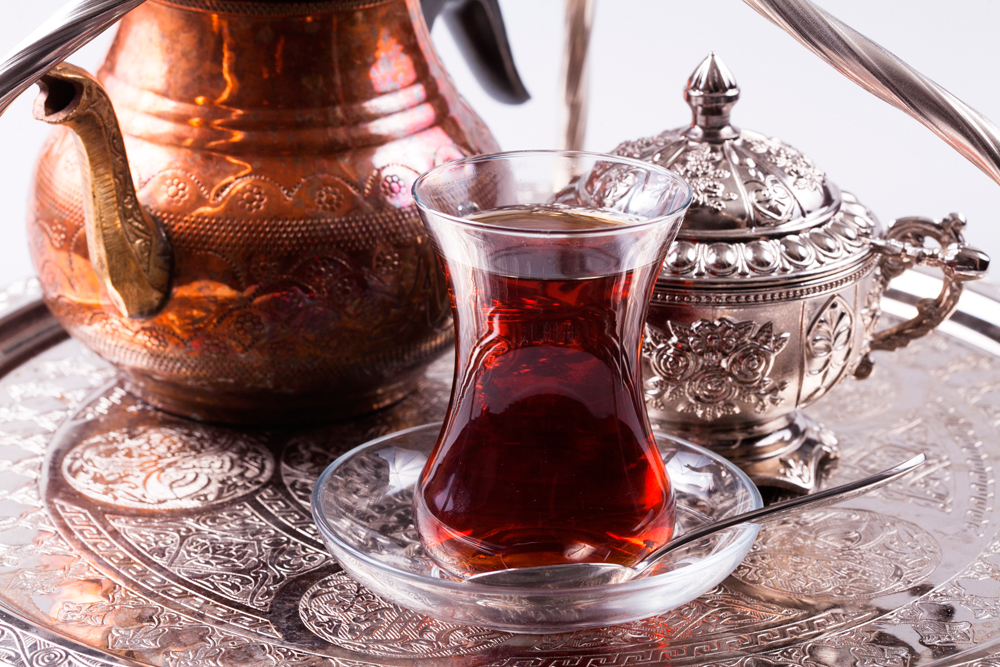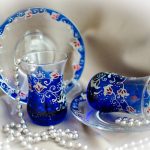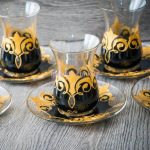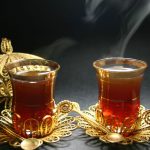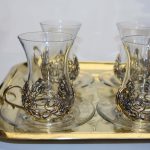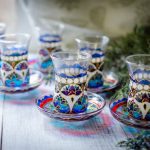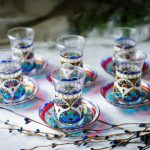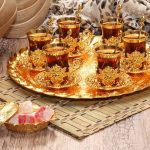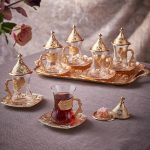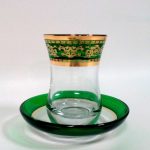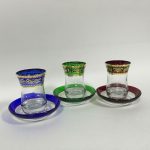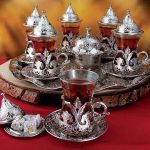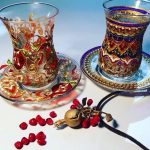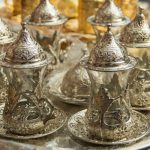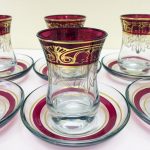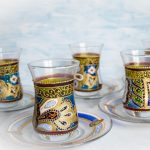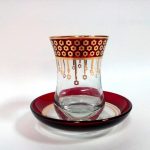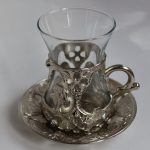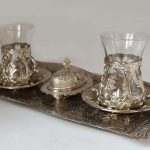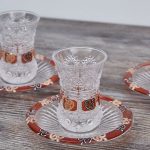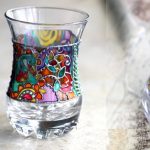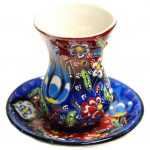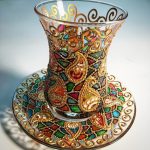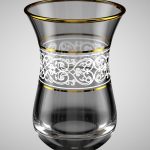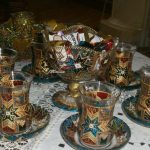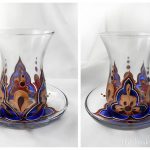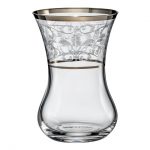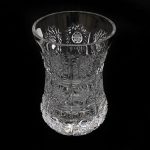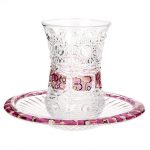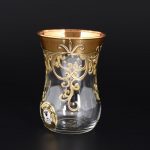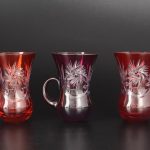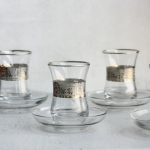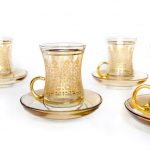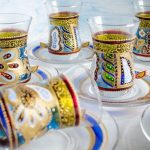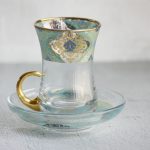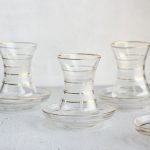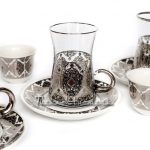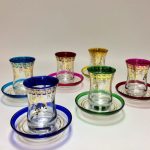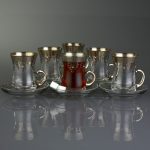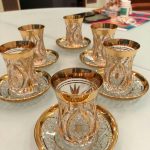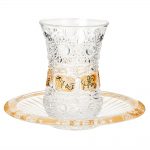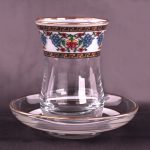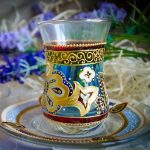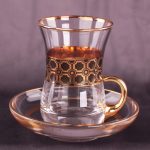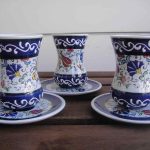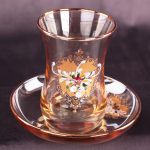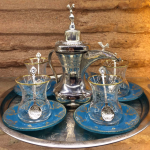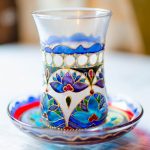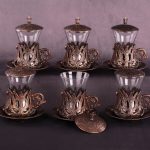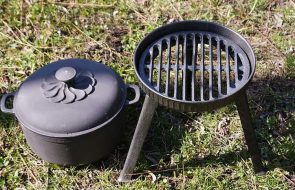The tea ceremony in different countries is a delicate matter. There are many interesting traditions that have been preserved since ancient times. For example, Turkish tea glasses resemble a tulip bud, and their use implies a real ritual.
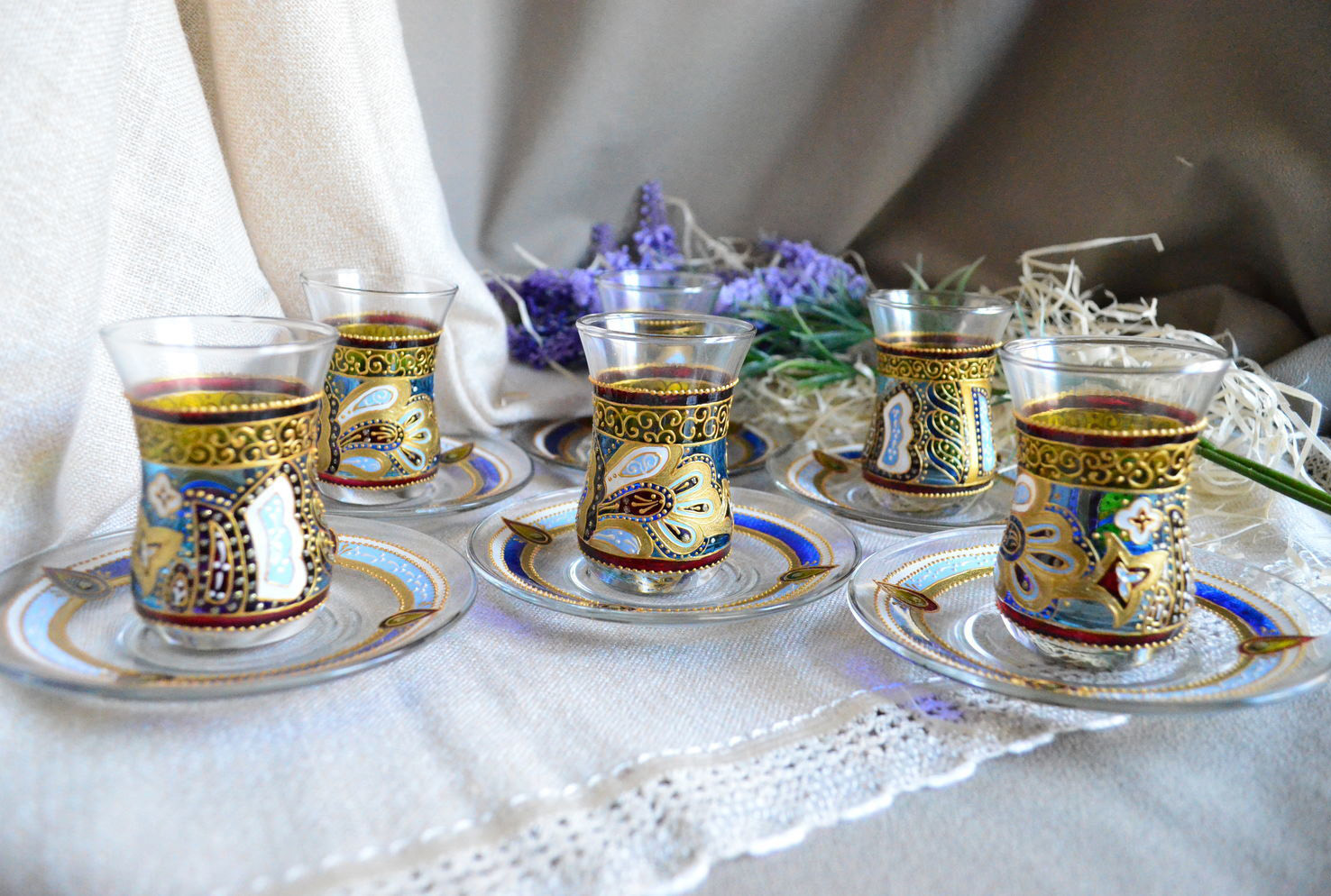
Content
- What is the correct name for a Turkish tea glass?
- Features of the glass shape
- Materials of Turkish Tea Glasses
- Accessories for oriental glasses
- Rules for serving and drinking tea from a Turkish glass
- Recommendations for caring for armuda
- VIDEO: How to brew real Turkish tea in an armudu.
- 50 Design Options for Turkish Armudu Tea Glasses:
What is the correct name for a Turkish tea glass?
A glass for brewing tea in Turkey is called "armudu". According to history, the name arose due to its peculiar shape: the vessel resembles a quince, the fruit of a tree growing in Central Asia. Some argue that the etymology of its origin is related to the female figure - high breasts, thin waist and wide hips. In Turkey, the product is called "bardak".
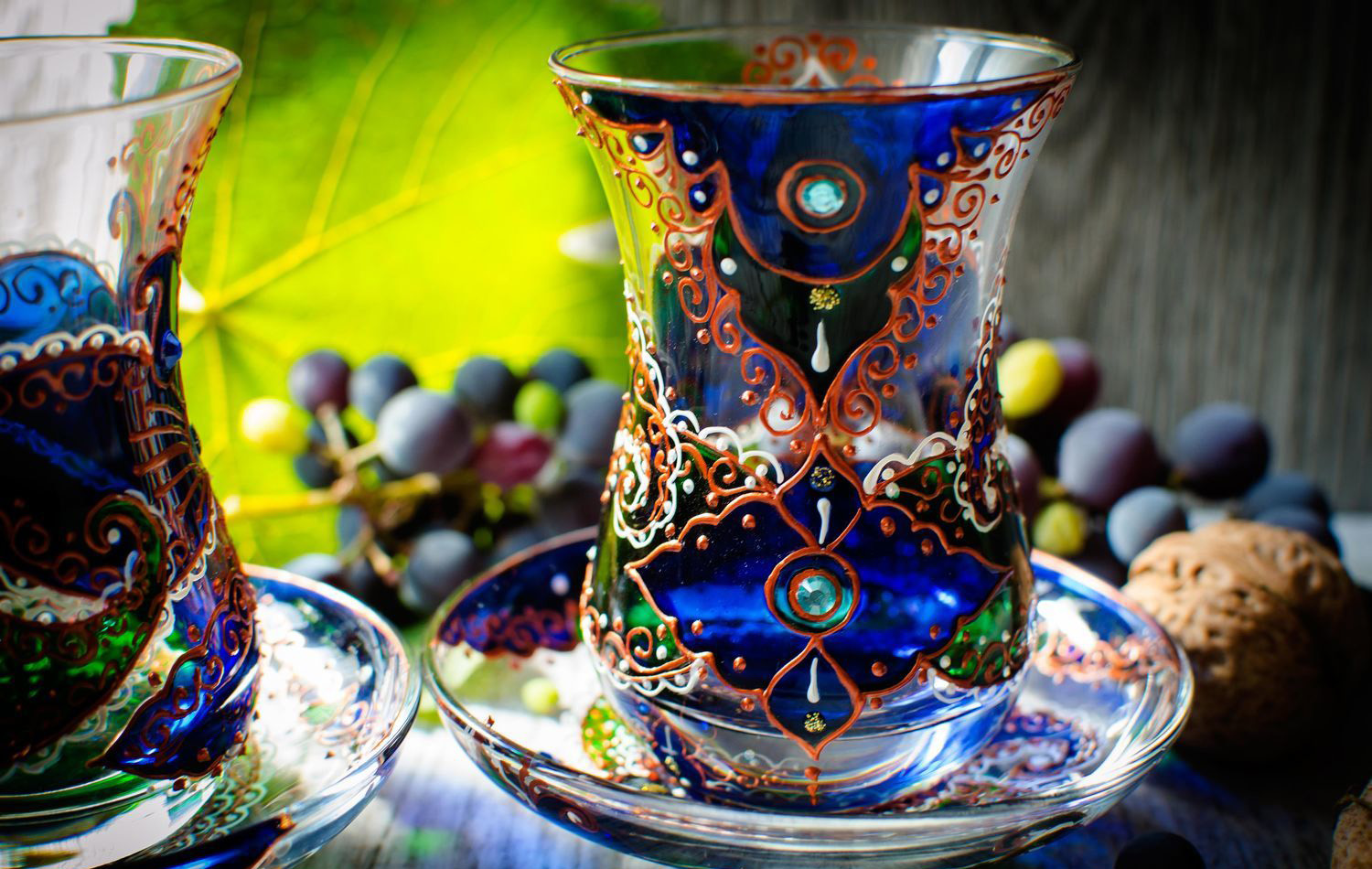
Features of the glass shape
The Eastern armudu is distinguished by its “waist” – the bottom and neck are wide, and the vessel narrows in the center. Contrary to the opinions of historians, this appearance is not at all for beauty: it contributes to the convenience of tea drinking. In the upper part of the vessel, the liquid has time to cool down, so you can drink without burning yourself.
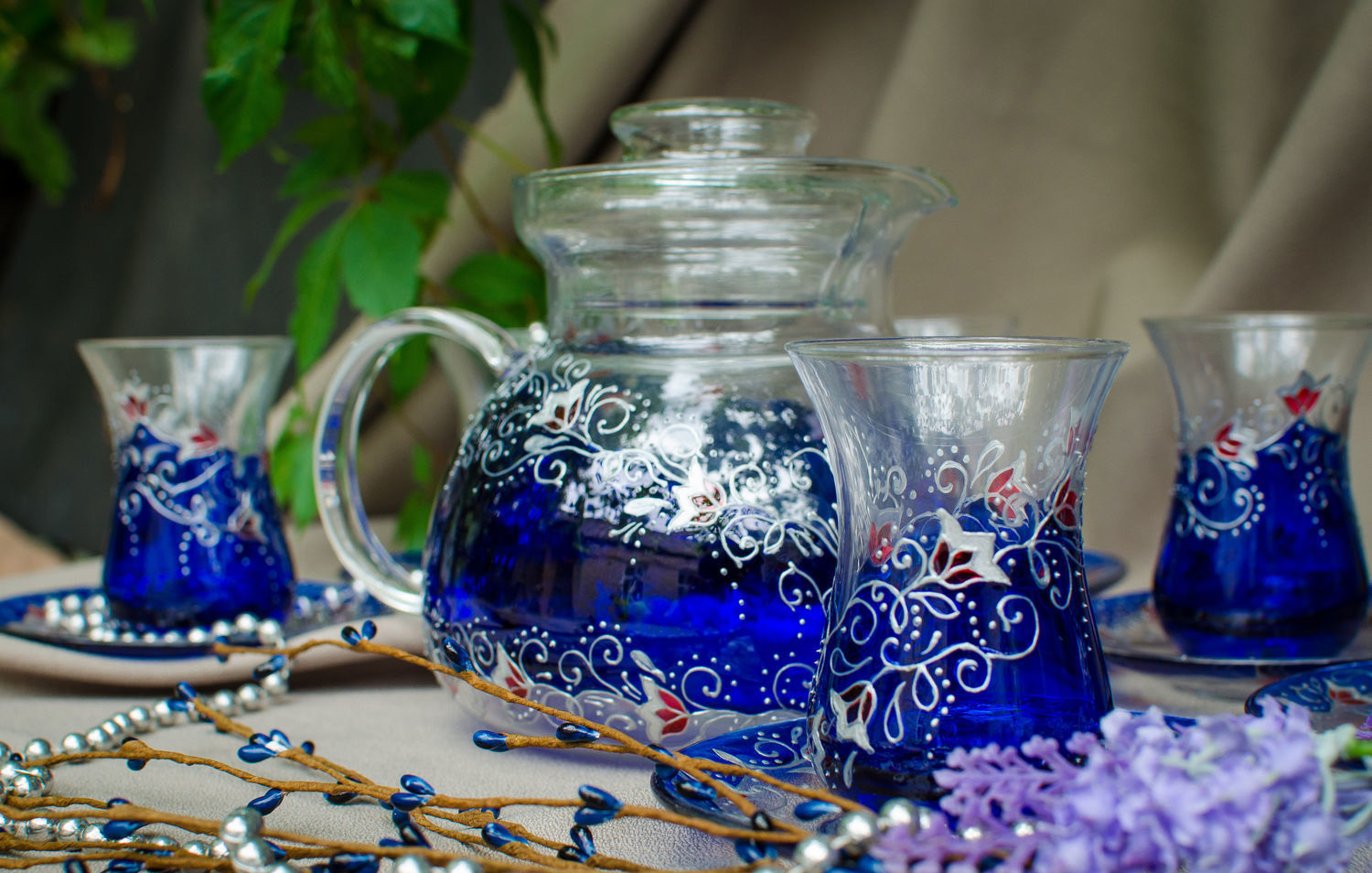
The narrowing in the central part of the glass does not allow the drink to cool down below. Thus, the optimal temperature of the tea is maintained - you can savor the aromatic drink for a long time.
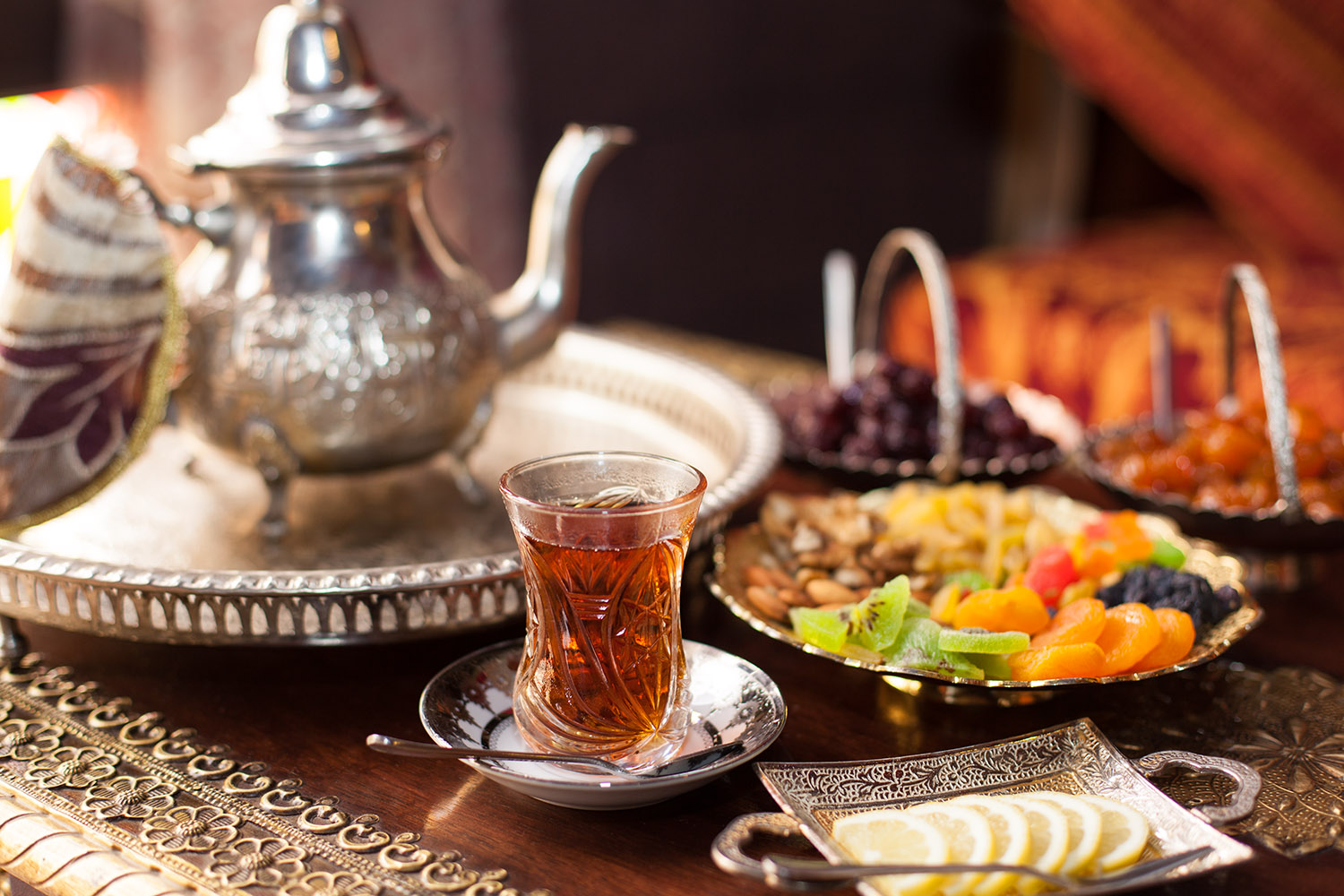
It is comfortable to hold an armuda in your hand – it does not burn and fits comfortably between your fingers. In Turkey and Azerbaijan, the dishes are without handles, but for Turkish tourists, vessels with handles were created – this is how the cup with a narrow “waist” in the center appeared. The location of the handle can be different: at the bottom or at the top of the container. There are even similar cups for coffee lovers!
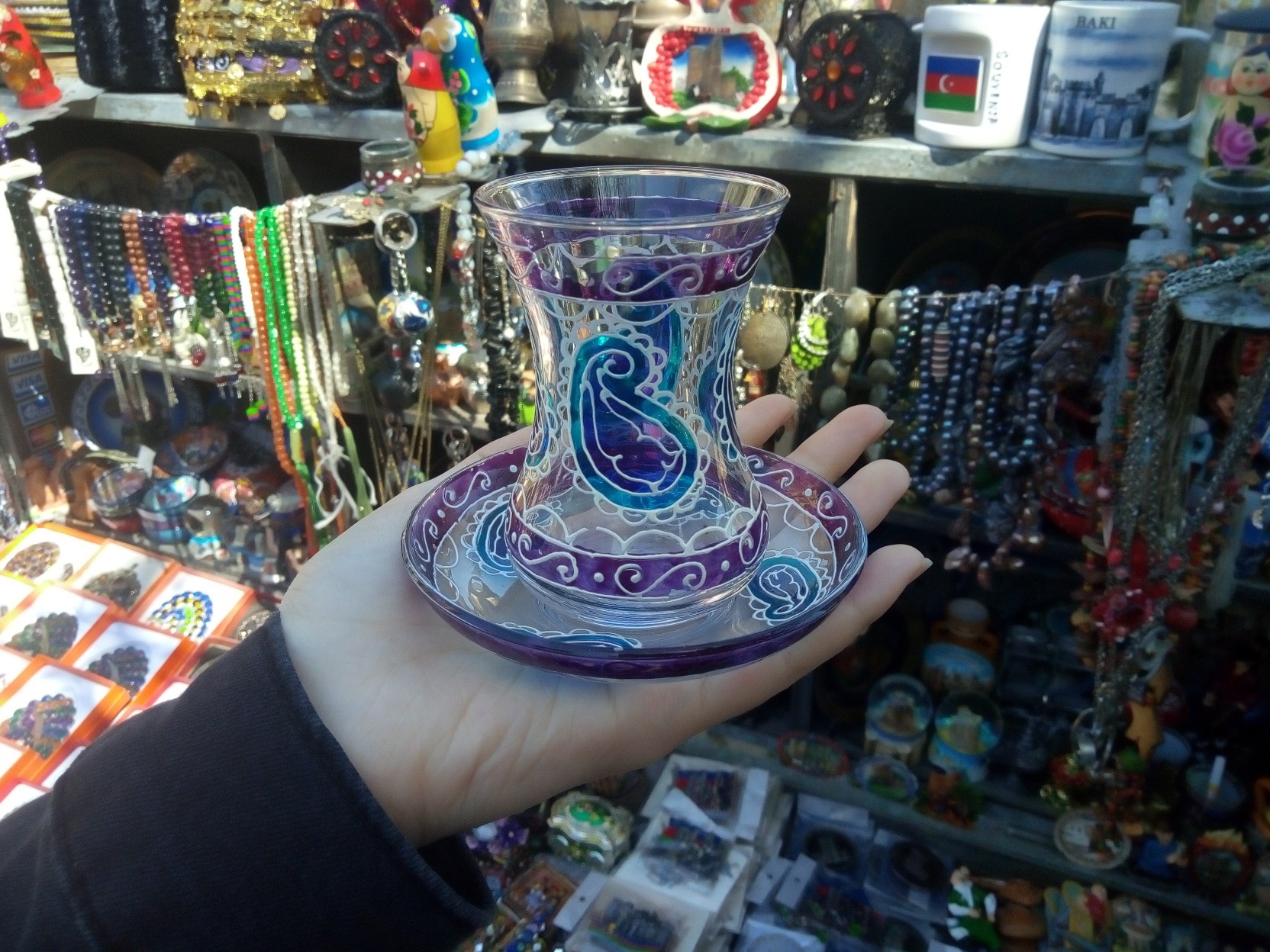
Please note! If you want to give a gift to a person who loves Eastern culture, you should not give him an armuda with a handle.
Materials of Turkish Tea Glasses
Armuds are popular among tourists, so their production has become large-scale. You can even see original products made by hand.
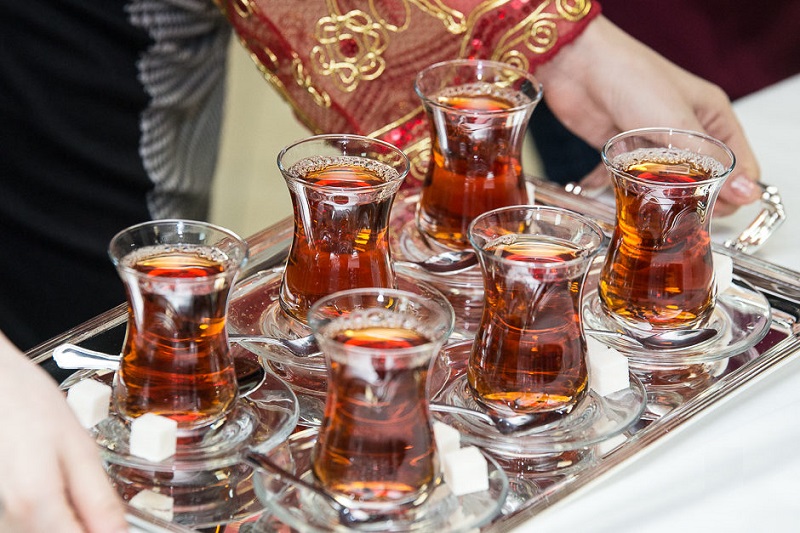
Classic glass and crystal armuds
Eastern glass cups for savoring tea are the most popular option. The drink and its beautiful golden hue are visible through the walls of transparent glass.
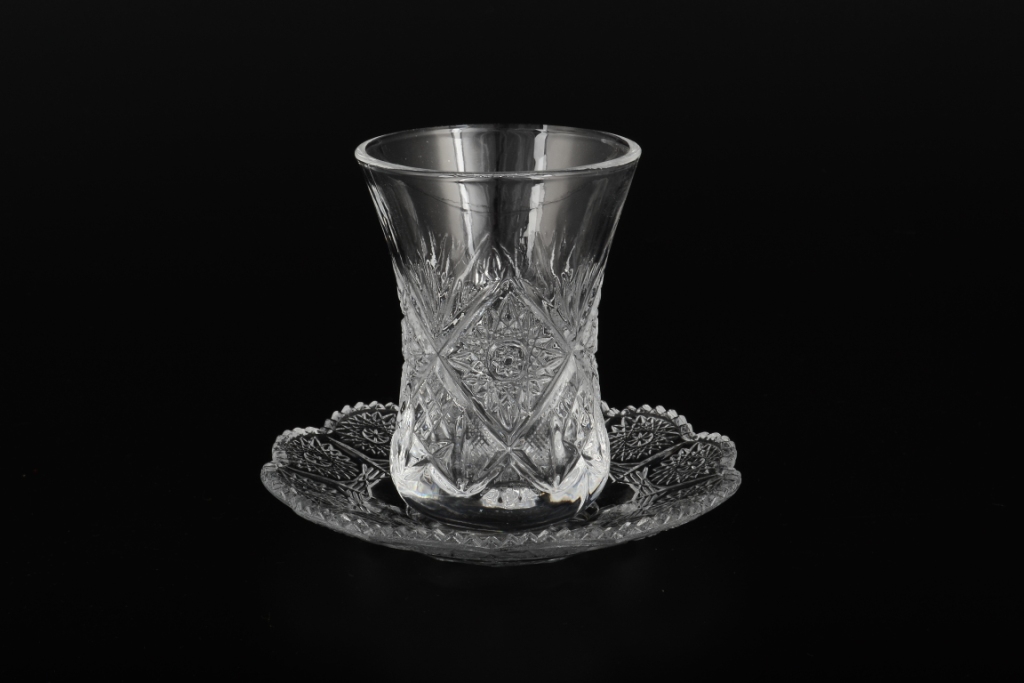
Thickened glass is used for production, which can withstand temperature changes. An oriental ornament is applied to the surface; for minimalists, a transparent product without patterns is offered.
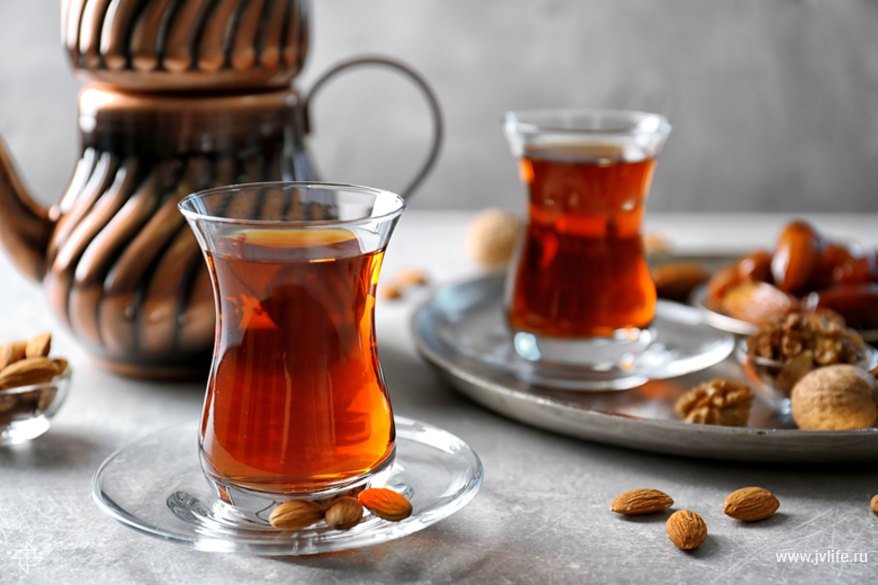
Important! Check with the seller about the material – simple glass can crack from a sudden temperature change!
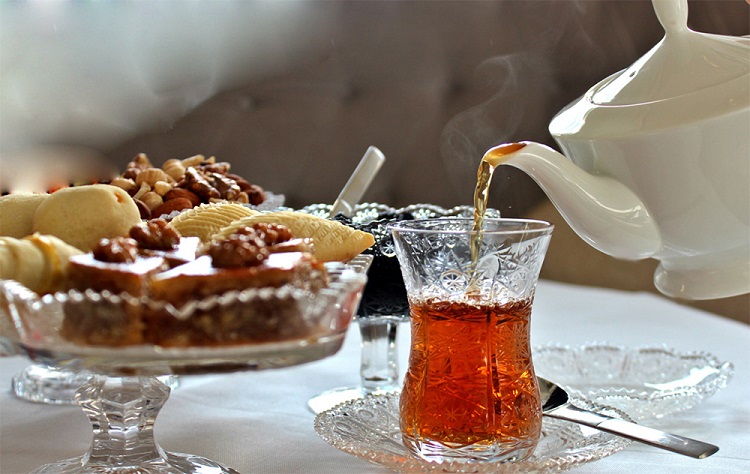
Crystal armuds are made from mountain quartz – it is durable and easy to cut. Bohemian glass is also used – a beautiful, durable material that contains lead. Such glasses are transparent, with a voluminous, delicate cut. When in contact with other dishes, a pleasant, long ringing is heard. The East is famous for its rich decorations; multi-colored containers look unusual.
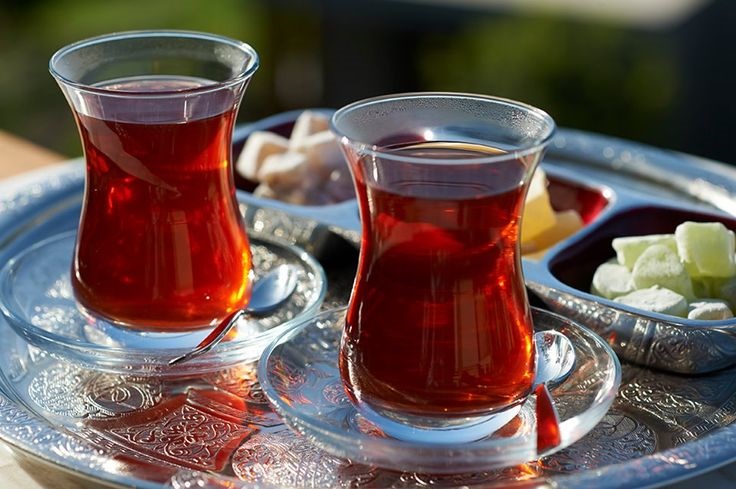
Porcelain glasses
Porcelain armudu is a festive type of tableware for special occasions. It is a beautiful and reliable material that can withstand impacts and temperature changes. A pattern is applied to the surface - overglaze and underglaze painting. In gift sets, the walls are decorated with mosaics or stones.
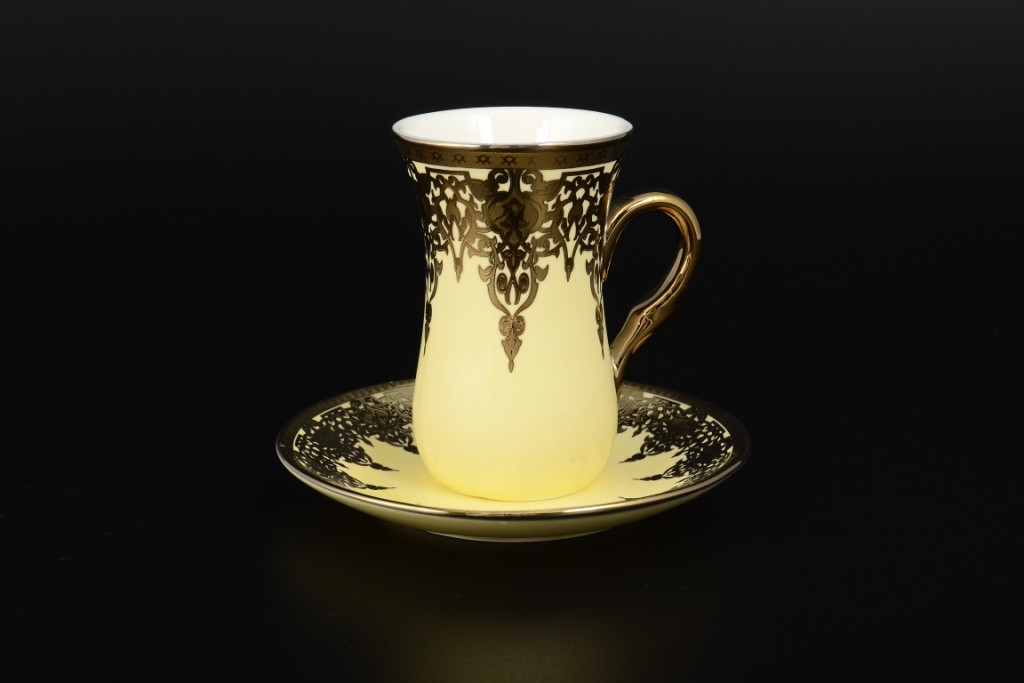
Bone china is made from bone meal, which makes the dishes thin and elegant. It is also a festive option, sold in sets with sugar bowls and candy dishes.
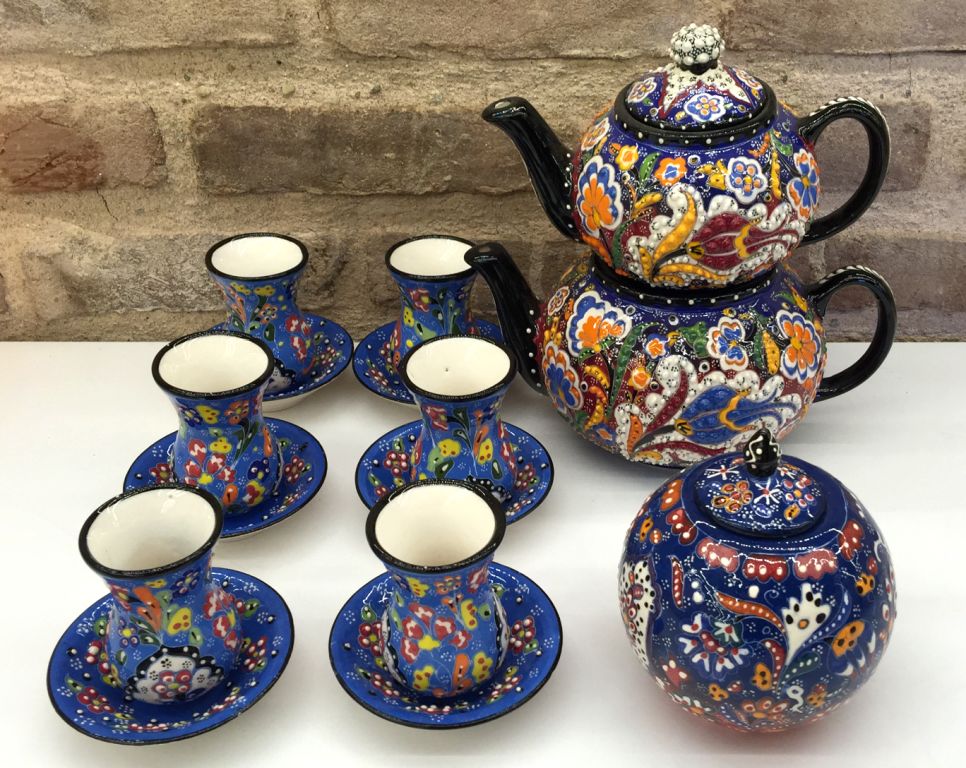
Luxurious Silver Armuds
Silverware glasses are popular in gift sets. In Turkish homes, they are given to special guests. They are impractical – you can burn yourself with hot liquid. The ideal solution is to choose a silver glass holder that matches the glassware.
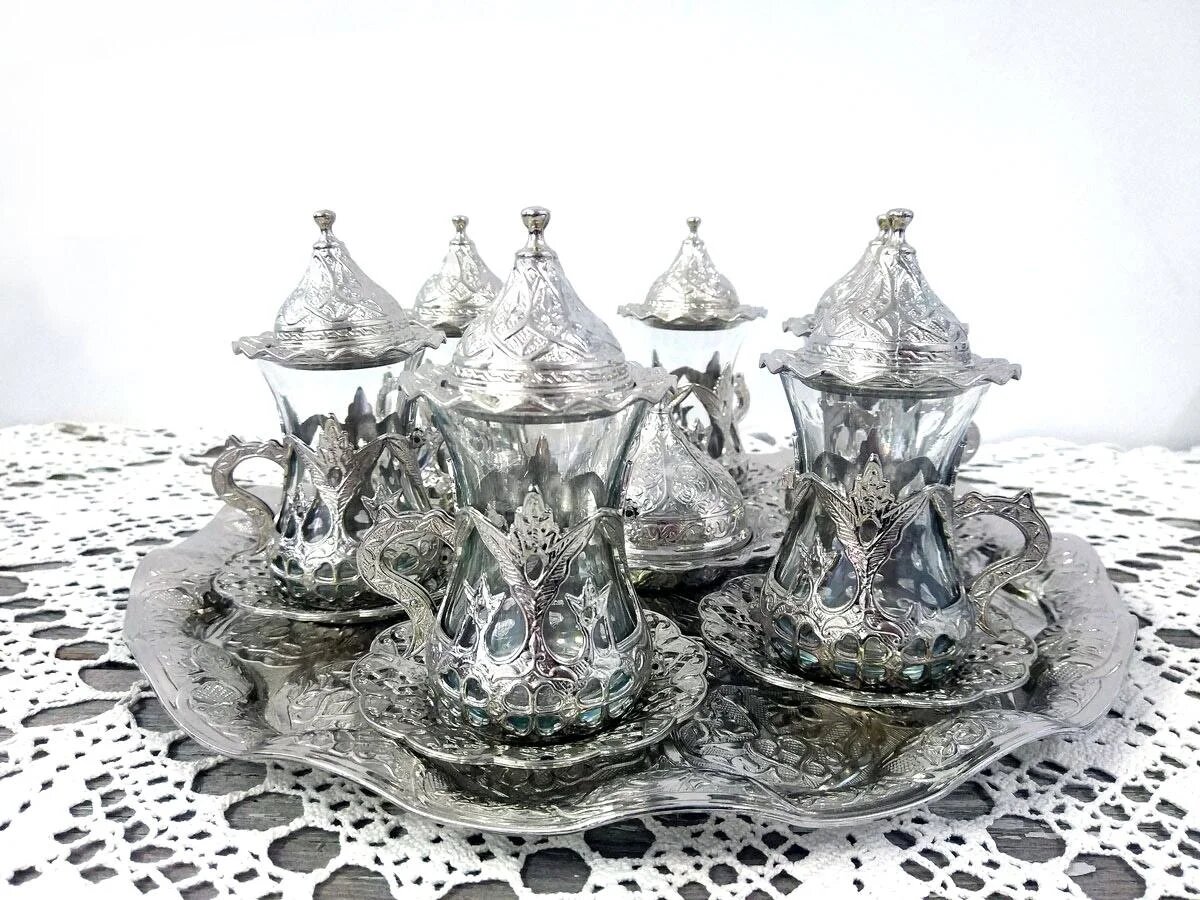
Please note! Some manufacturers use alloys - brass, cupronickel, stainless steel. The vessel is covered with silver or gold plated on top, which can easily be confused with real metal. Read the product description to avoid being tricked.
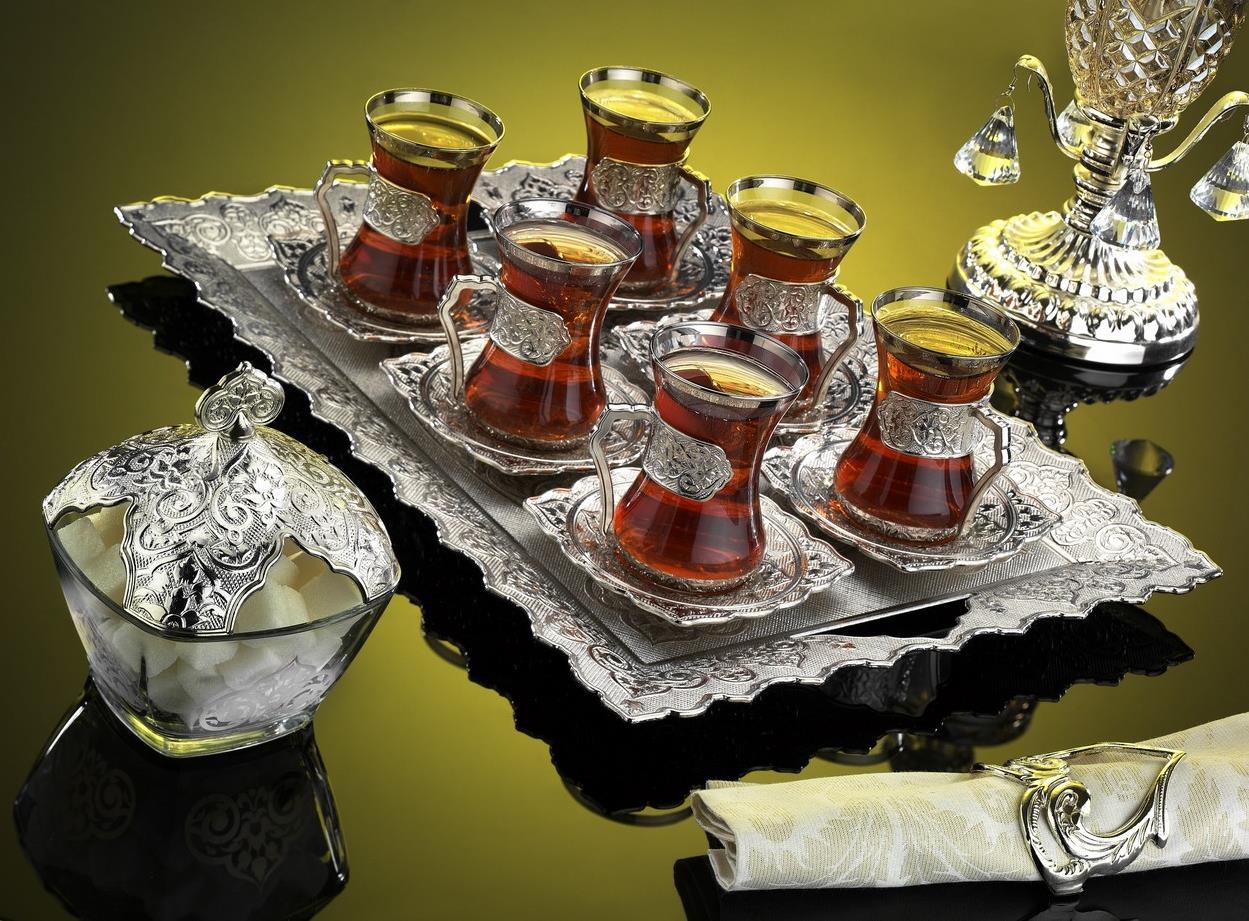
Accessories for oriental glasses
Tableware with accessories looks expensive and elegant. According to the rules of good manners, a cup should be placed on a saucer - this tradition also exists in Turkey.
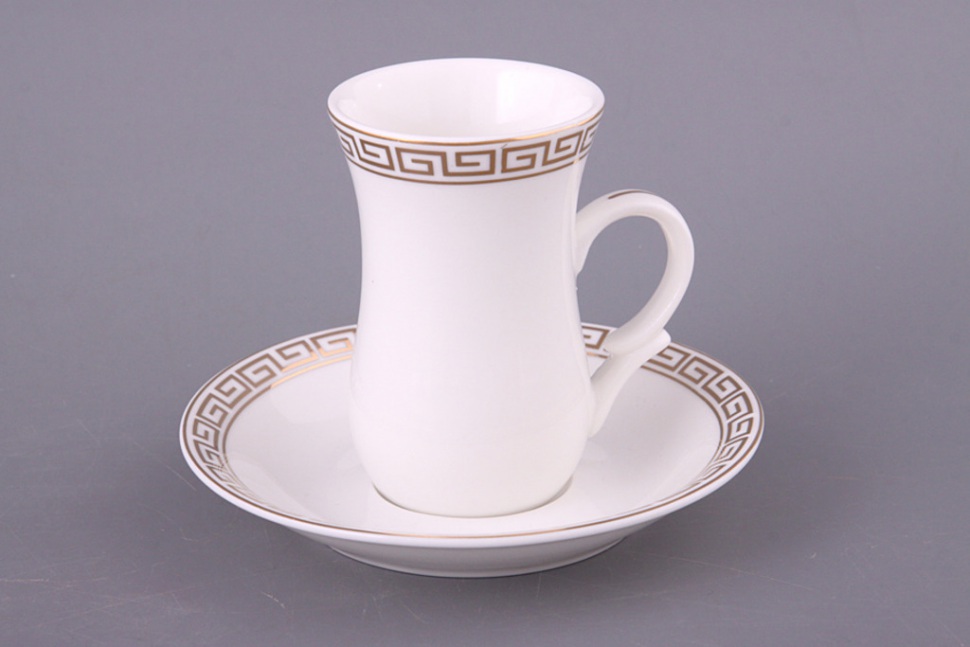
Saucer
The saucer protects the tablecloth and table from spilling hot tea. In addition, it transfers all the heat to the glass, helping the drink to cool down more slowly. To make the tableware look stylish and elegant, it is recommended to combine items by material and style. A metal saucer will suit a classic glass glass.
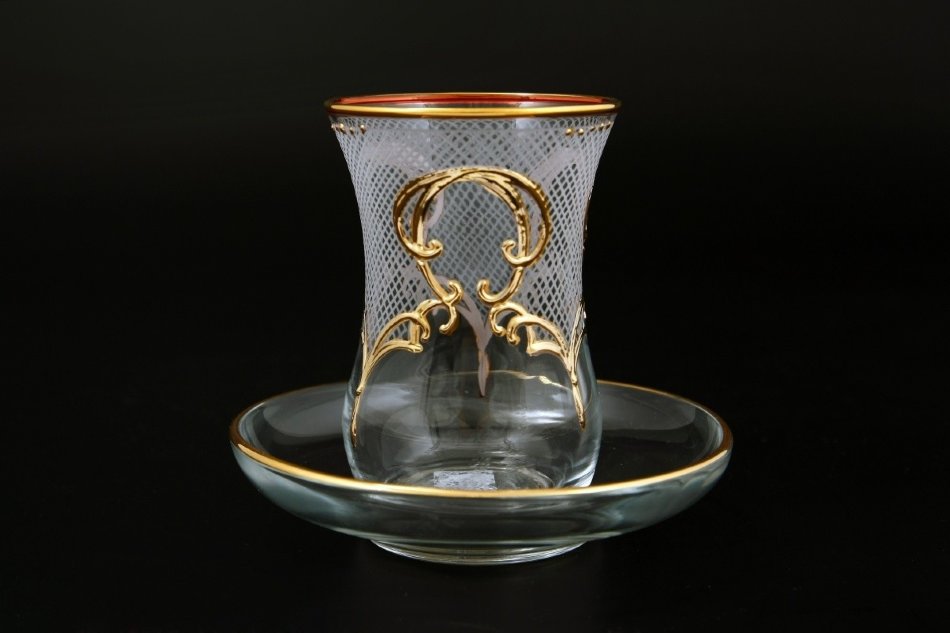
Cup holder
The cup holder is made of alloys (cupronickel, bronze) or natural metals (silver). This is an alternative to a cup with a handle - you can drink without fear of burning your fingers.
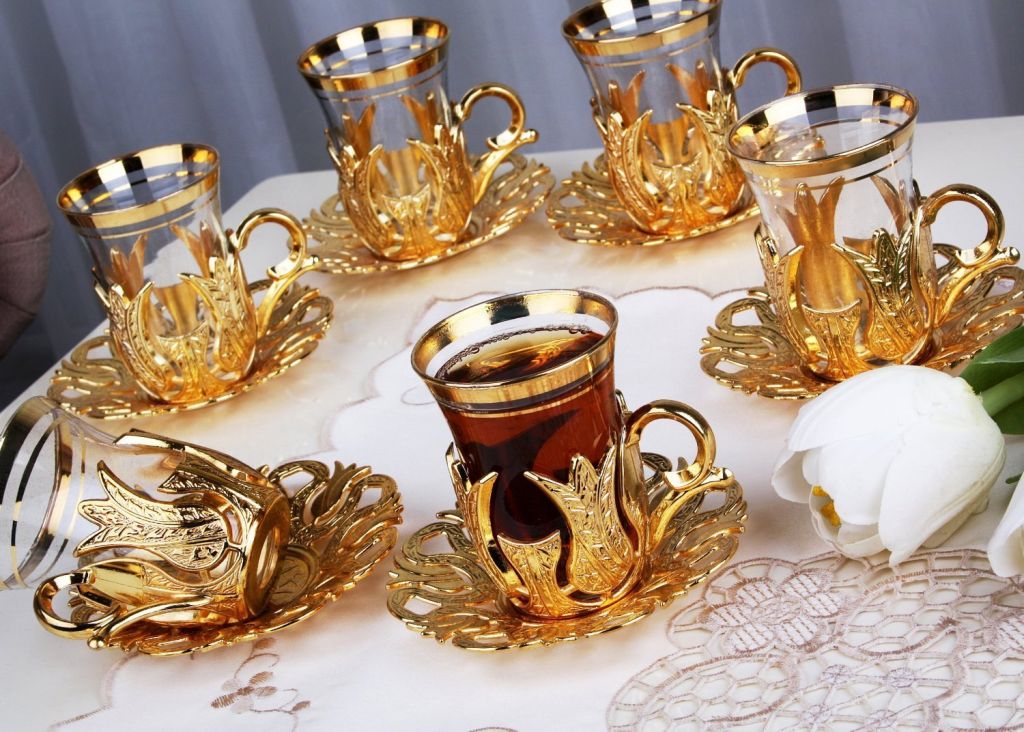
Due to the different styles, the cup holder allows you to expand the possibilities of decor. It can be minimalism or a large, voluminous product - it covers up the whole "mess". For gift items, many jewelry decor techniques are used.
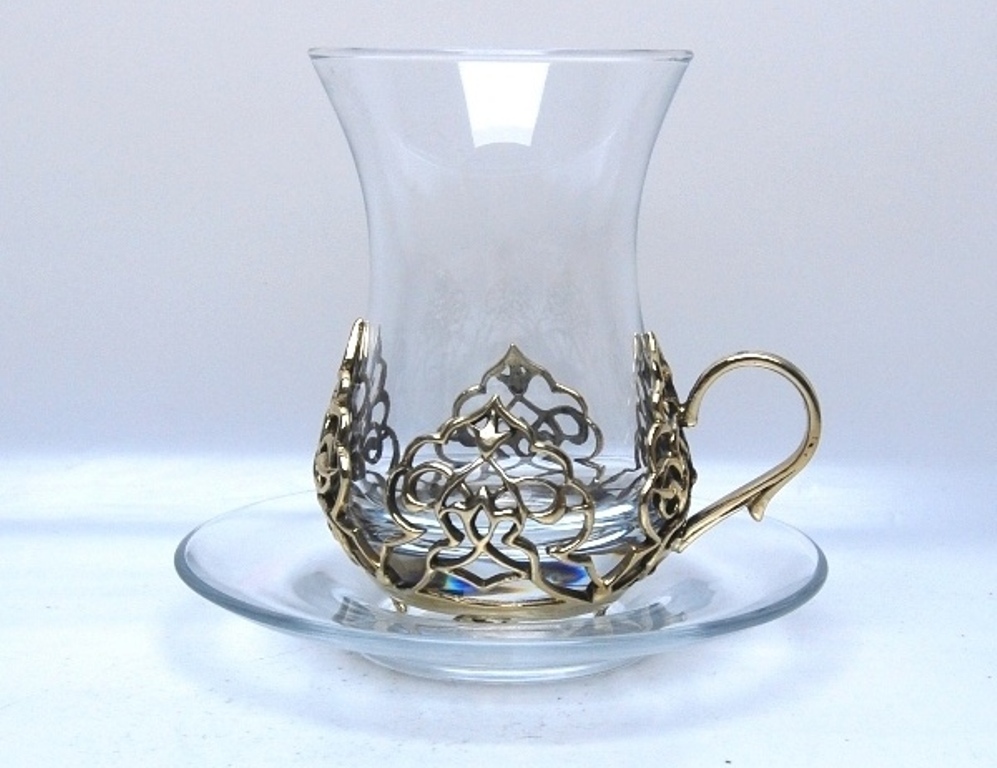
Rules for serving and drinking tea from a Turkish glass
The shape of the armudu allows you to retain the aroma and taste of tea for a long time. In Eastern countries, brewing tea is a real ritual, which is characterized by its own rules:
- Black or green tea is poured with half of the required amount of boiling water, the teapot is covered with a lid and a towel;
- After 3 minutes, add the remaining boiling water and continue to infuse for 2 minutes.
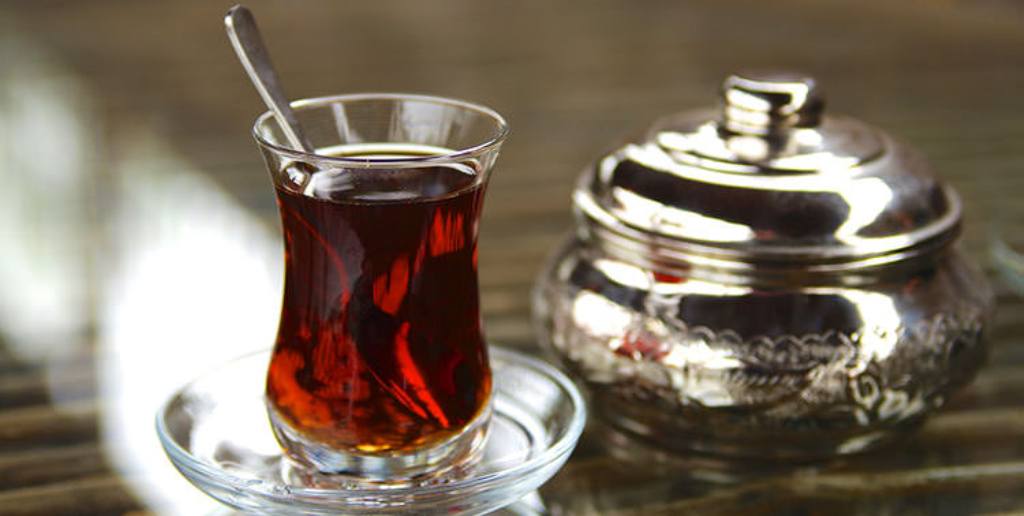
When the drink is ready, the table is set:
- the teapot is located in the middle of the table;
- in front of each person is placed a saucer on which is placed the filled “Bardak”;
- Do not add 1 cm of liquid to the edge of the container to avoid burning;
- A new portion of tea is added as the guest drinks.
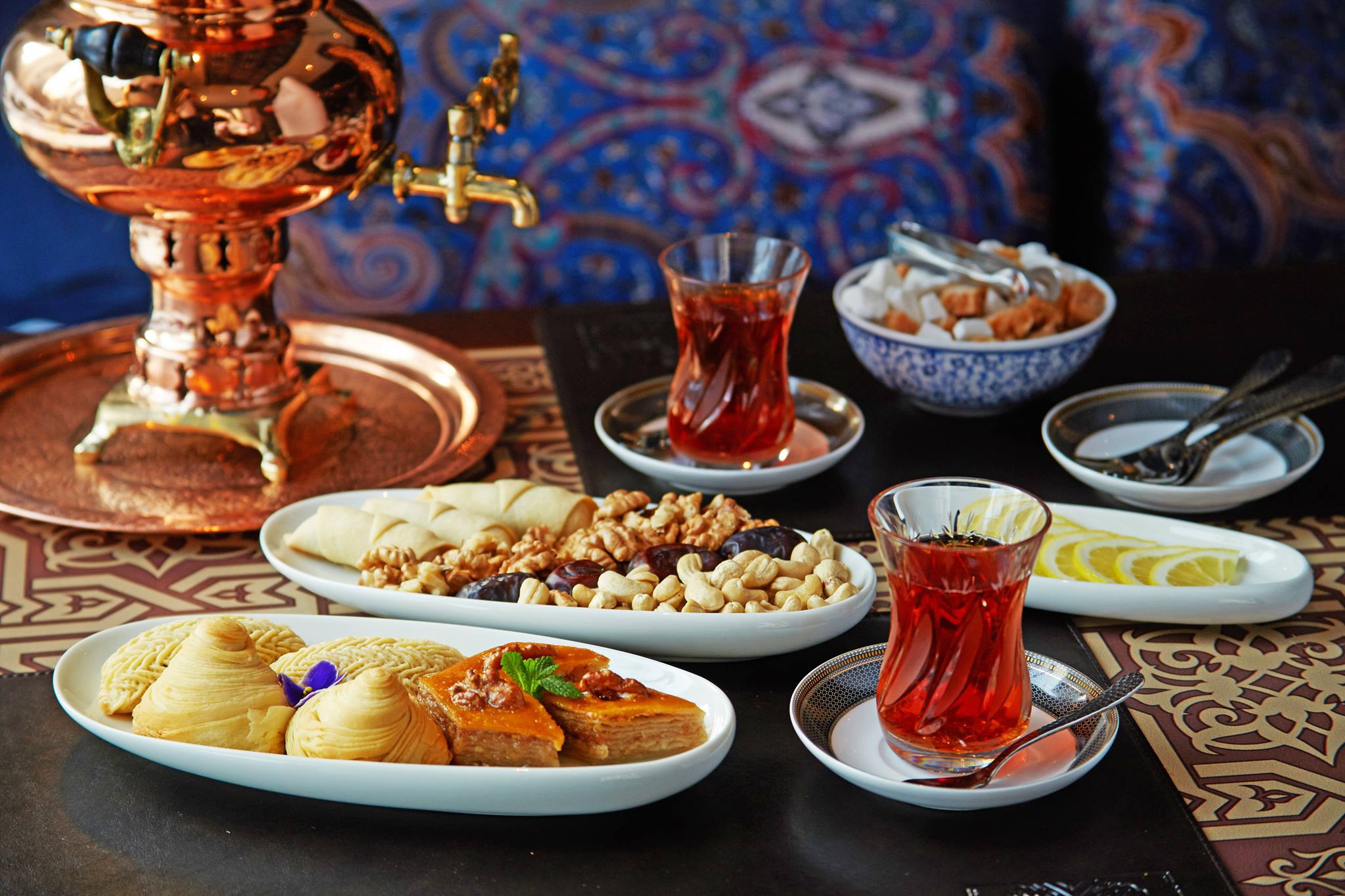
Sugar is not put into the cup. Refined sugar (in pieces) is eaten as a snack, served on a separate saucer. A piece of sugar is taken with fingers, dipped in brewed liquid and eaten, washed down with tea.
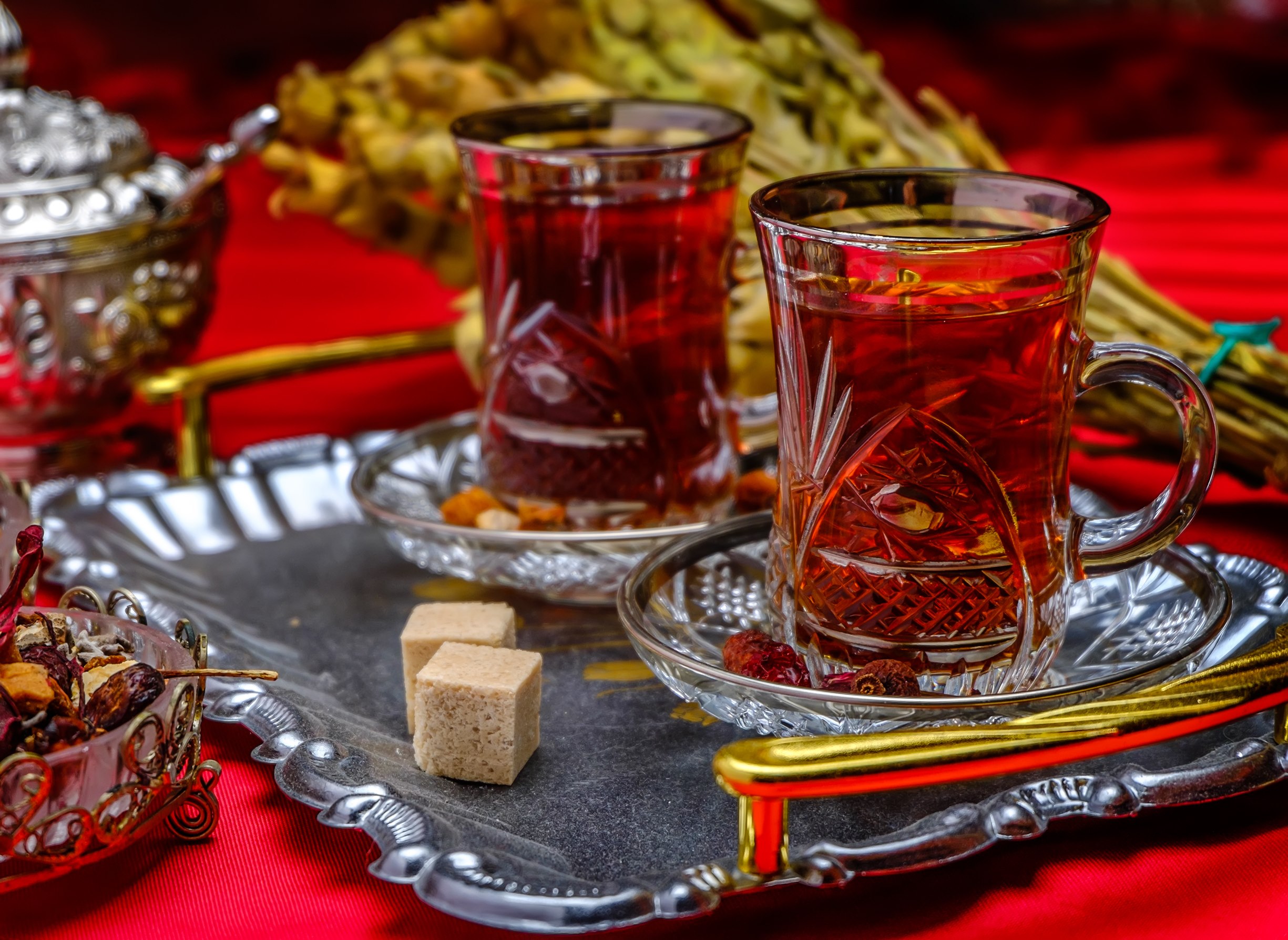
At eastern tea ceremonies, it is not customary to offer guests cream, milk or pastries. The peculiarity of eastern tea is that it is always served pure. On the table there may be: dried fruits, jam, candied fruits, lemon, preserves, honey.
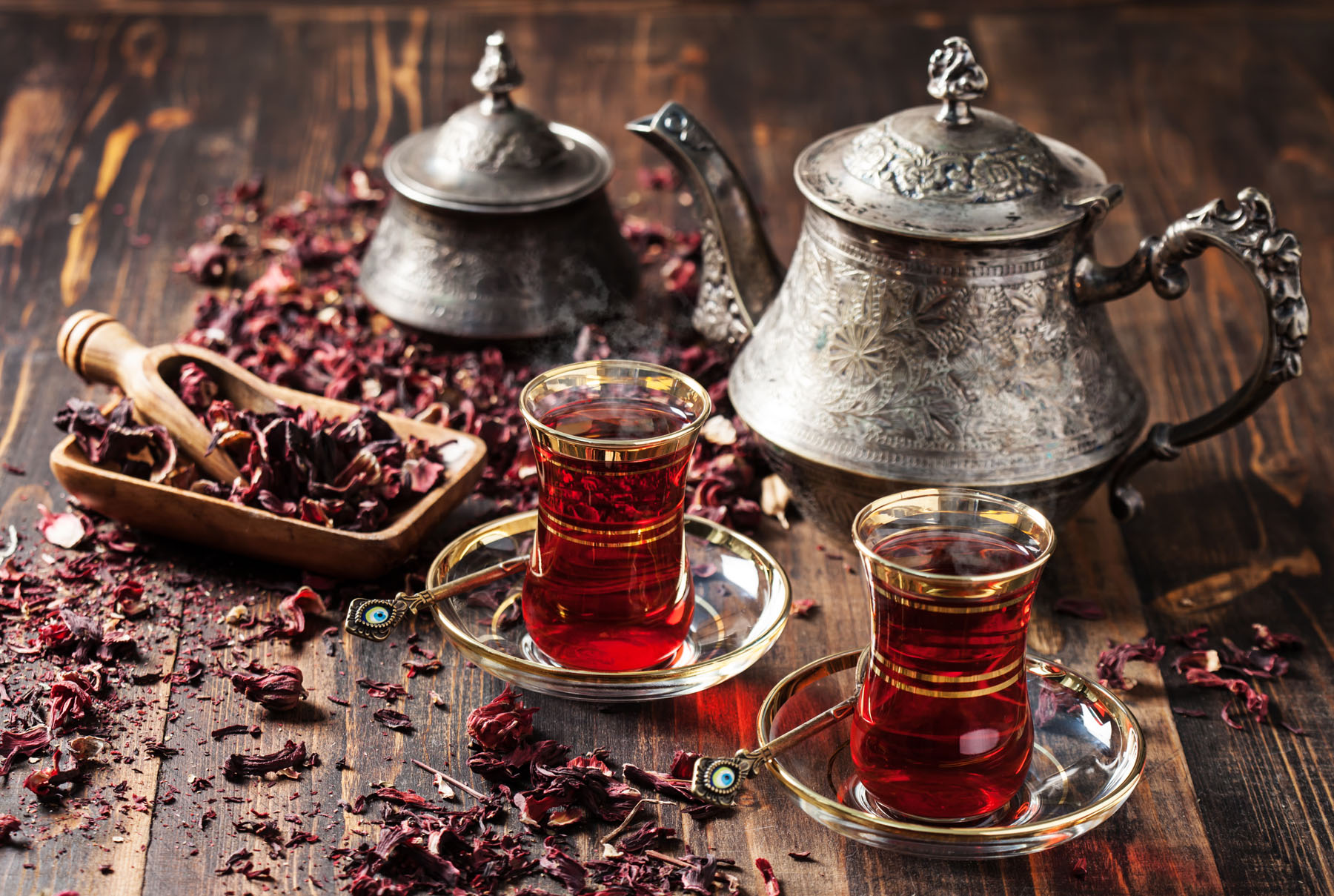
Drink from the vessel in small sips, without waiting for it to cool. The container is taken in the right hand, closer to the base, by the narrowed part. There are no rules of etiquette - a person holds the container in a way that is comfortable for him. It is better to lift the dish with a saucer or a glass holder. To prevent the brewed tea from cooling down in the teapot, it is covered with a lid and a towel.
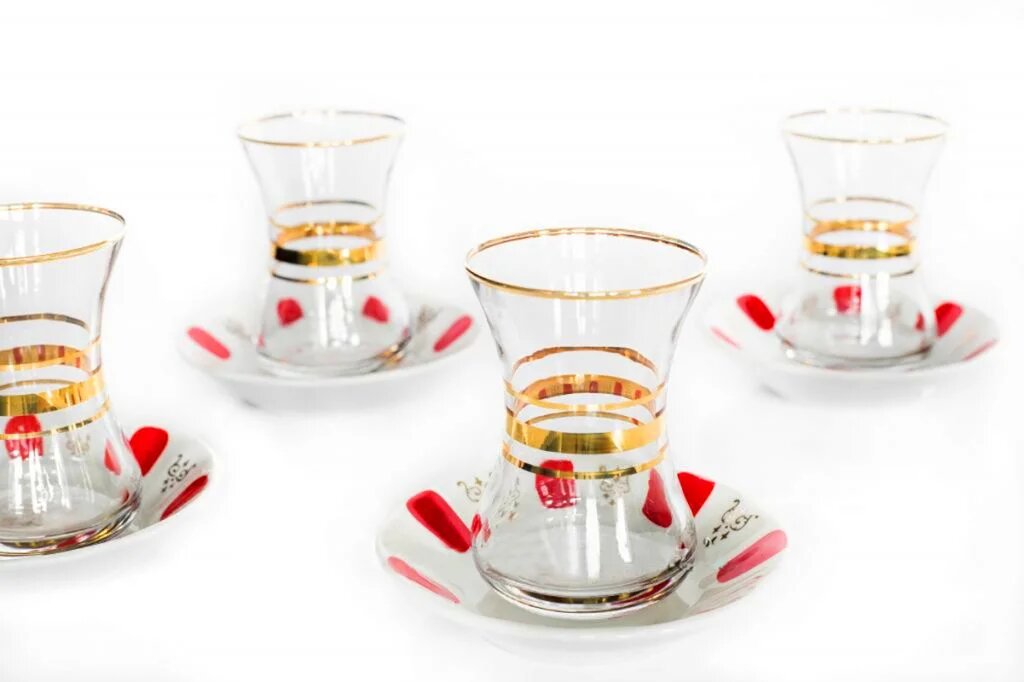
Recommendations for caring for armuda
In the East, household chemicals are not used to clean armudu - it is believed that this spoils the noble taste of tea. A "mess" made of porcelain or glass is cleaned with simple baking soda. If the glass has not been used for long, it is doused with boiling water and wiped dry. The procedure is similar for ceramic sets. Before the first brewing of the drink, it is rinsed with boiling water twice.

Turkish armudu is a great alternative to traditional cups. Thanks to the shape and temperature retention features, the vessel reveals all the notes of aromatic tea, its richness, shade, and taste. "Bardak" from Turkey is a good gift for tea ceremony lovers!
